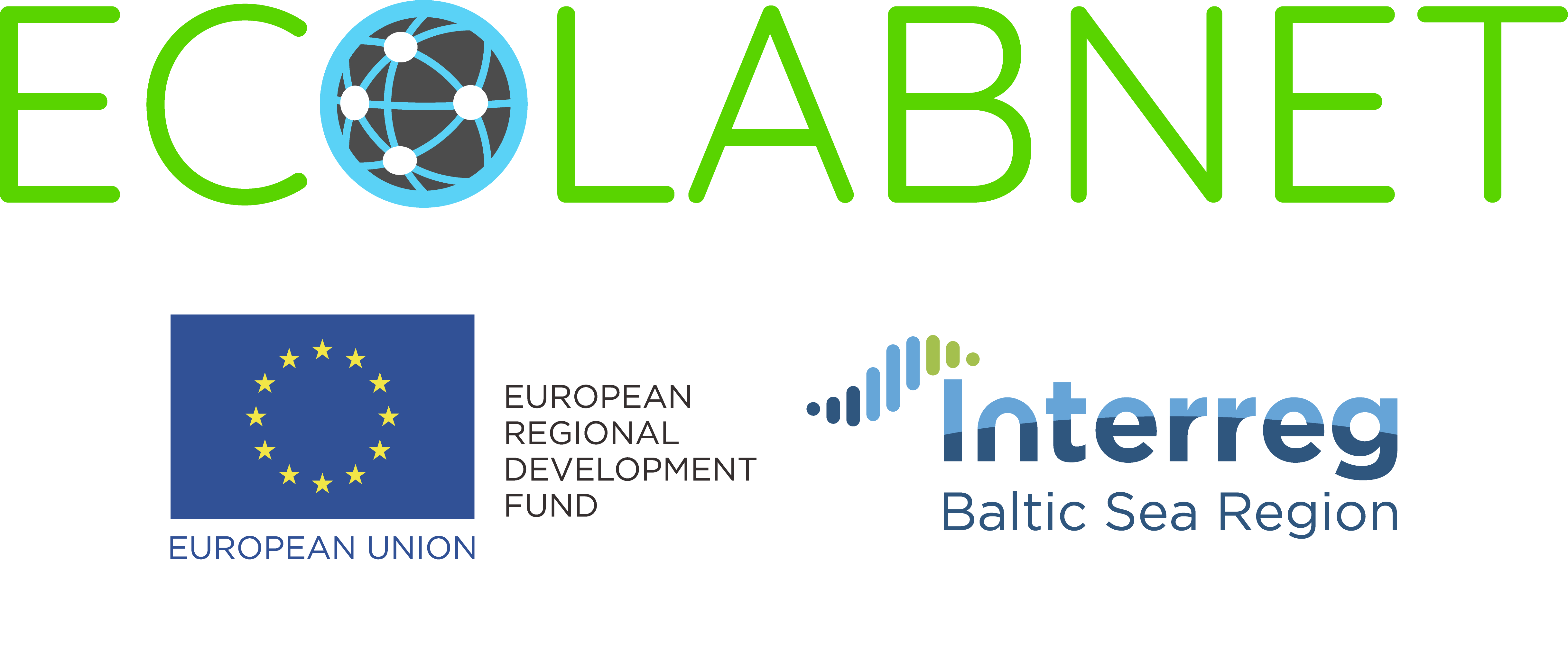Find services and experts
Digital Collaboration Tool – DCT – is a digital meeting place, where you can find collaboration partners for eco-innovation. DCT is the right place for you, if you want to:
– be up-to-date with the latest solutions in eco-innovation,
– learn about solutions bringing measurable effects,
– find new, potential partners or customers,
– get in touch with new customers,
– more effectively involve customers
ECOLABNET SERVICE PACKAGES
ECOLABNET offers special expertise for developing ecological product life-cycle starting from bio-based material development, product and service design, 3D printing, branding life-cycle assessment.
BIOBASED MATERIALS
Biobased material services determine the properties and characteristics of biopolymers and polymer biocomposites, tests materials and their suitability for 3D printing as well as performs chemical analysis. 52 % of the materials for 3DP are bio-based polymers; polyamide 11 (vegetable oils), TPE and TPS (rapeseed oil), when PLA (corn or sugarcane) being the most used. Commercialization of new materials require cooperation between RDI actors and industries.
3D PRINTING
3D printing (additive manufacturing) covers various direct printing of 3D technologies. It is revolutionizing manufacturing technique as it brings production closer to customers, offers costs effective prototyping of products and manufacturing small series. 3D printing services cover material testing, defining parameters, product testing and prototyping.
PRODUCT DESIGN AND DEVELOPMENT
Product design and development in eco-innovation gathers information about markets, potential customers, and technologies, which is developed into a product concepts and technical solutions. Logistic, manufacturing, service and business aspects are considered in product design and development. The services include technical, functional, usability and branding aspects of product development.
MARKETING
Ecological products require professional branding in order to communicate the benefits of investments in sustainability to potential. The marketing services study markets, consumer behaviour, defines and implements strategic and operational actions related to branding and marketing. They also conduct tests and experiments and plans and produces marketing material to different marketing channels.
ENVIRONMENTAL ASSESSMENT
Life Cycle Assessment (LCA) is used to evaluate environmental impacts of systems. The services analyse the impacts, determines the protective measures and the activities for limiting or minimising the impact. LCA can be used in different stages of eco-innovation to find the most feasible solution both economically and environmentally and creates a base for labels for environmentally friendly products (EU Ecolabel, Blue Angel, Nordic Ecolabel, etc.)
BUSINESS STRATEGY
Eco-innovation requires holistic development of sustainability. Strategy services define targets, actions and measurements for business development. It can generate new business concepts for curcular economy or adjust solutions to sustainable development. Development of service business can improve sustainability through product life-cycle services.
ECO-INNOVATION MANAGEMENT
Eco-innovation management approaches innovations as a competitive advangage. The services support companies in planning and implementing innovation projects, provides financial and legal services, educates companies. The services promotes innovative products and services through technology transfer and searches needed partners and establishes contacts and collaboration.
SERVICE PACKAGES IN DETAIL
ECOLABNET project developed service packages to help companies to find the needed expertise to eco-innovation. The service packages contain RDI services related to specific expertise. Learn more from the report and the table of the services offered by original partners.
reporttableSupport for eco-innovation
The animation explains what are the needs of manufacturing small and medium sized companies according the ECOLABNET studies. Through user personas, the video presents how support organisations and RDI service providers help companies in eco-innovation.
Demonstrations about eco-innovations
Manufacturing companies collaborated with research, development and innovation experts in order to develop eco-innovations. Learn about the demonstrations throug videos and presentations.
Optical 3D printied medical fittings made of bioresins
Bio-based material scientists, 3D printing researchers and companies work together on discovering functional bio-based materials for 3D printing. They developed extremely precise medical fittings from bioresings
Bio-derived 3D printable resin for medical parts
Consumption of natural resources, C02 footprint vast of waste, especially plastic, are getting larger as the population of humanity is increasing. To reduce all these adverse effects, there is a great interest to search for renewable raw materials and adapt them for sustainable technological solutins, for example, additive manufacturing, which generates less waste than subtractive manufacturing.
3D printing of composite moulding tool
CENTRIA has mixed sawdust into the polymer and printed using pellet extruder attached to robot mould for a boat anchor. We obtained a fully recyclable tool with among other benefits significantly improved environmental performance. Work is ongoing and now we are starting printing large tools and also testing direct printing of composite parts to replace glass fibre composites where possible.
Bio-based 3D printed chocolate box
A present that feels good. A bio-based package with multiple functionalities and tailored for you by 3D printing.
BROCHUREBio-based dental 3D printing resin
Famous for its accuracy, dimensional stability and surface quality, it now incorporates high amount of bio-based components. You contribute to lowering the use of non-renewable sources when using this material in your dental lab.
BROCHUREInterview about 3D printing living materials
Three-dimensional (3D) printing of natural and synthetic materials for biomedical and biotechnology applications is a promising research field with applications that include screening tools and production platforms in a sustainable economy. Additive manufacturing allows 3D printing of polymeric materials together with cells, creating living materials for applications in biomedical research and biotechnology. However, an understanding of the cellular phenotype within living materials is lacking, which is a key limitation for their wider application.

